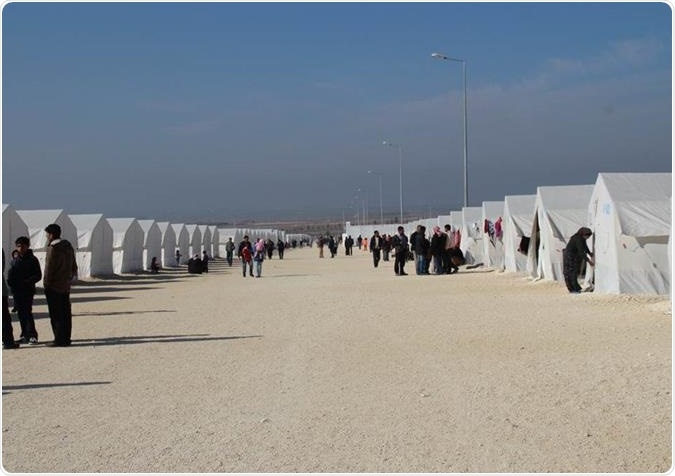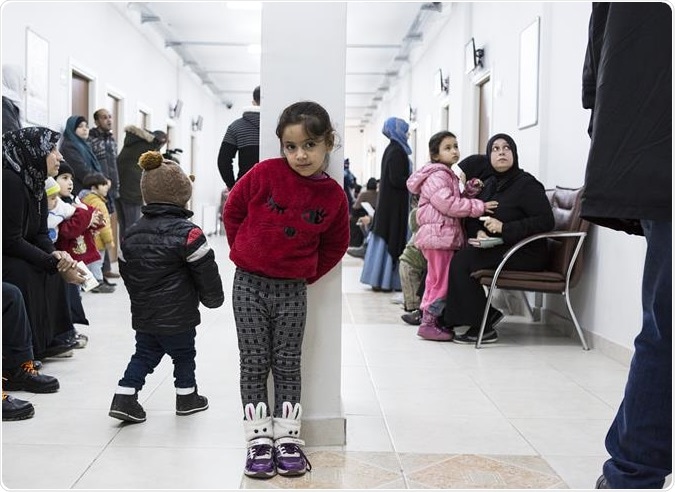The irregular migrant refugees coming to European nations are often accused on bringing with them host of exotic communicable diseases that tend to spread among the host communities. The World Health Organization (WHO) this week has absolved the migrants of spreading disease in its first report that deals with this issue.

Image Credit: WHO
Dr. Zsuzsanna Jakab, WHO Regional Director for Europe in a statement says, “The refugees and migrants that come to Europe, they do not bring any exotic diseases with them – any exotic communicable diseases... The diseases that they might have there are all well-established diseases in Europe, and also we have very good prevention and control programmes for these diseases. This applies both for tuberculosis but also HIV/AIDS.”
The report says that these beliefs of migrants bringing in infectious diseases are a myth. Dr. Jakab added, “International migrants make up about 10 per cent of the population in the European Region, that is about 90 million. Out of this, less than 7.4 per cent are refugees and in some of the European countries, citizens estimate that there are three or four times more migrants than there are in reality.”
The report was formed on the basis of over 13,000 documents dealing with the health conditions of the migrants and refugees in and around the WHO European Region. There are a total of six such regions around the world. The European region includes 53 nations and a total population of around 920 million. International migrants make up over 50 percent in Andorra and Monaco and vary in rates to less than 2 percent in countries such as Albania, Bosnia Herzegovina, Poland and Romania. With rise of migration across the world, this report provides a cross sectional picture, say experts. The report points out migrants are at a greater risk of ill health compared to the host communities and populations.

Image Credit: WHO
The data from the UN migration agency says that over 50,000 refugees and migrants have lost their lives in and around the Mediterranean since 2000. This new report from the WHO also adds that unaccompanied minors, teenagers, young men and women are most commonly at risk of “deceptive recruitment and modern slavery”. This practice gives way to serious mental and physical health impacts that not only affects the victims but also their families and communities, the report says. UN Department of Economic and Social Affairs states that there are 258 million migrants across the globe.
Some of the examples of diseases that plague migrants according to the report include –
- Diabetes - The WHO says that there is a “higher incidence, prevalence and mortality rate,” of diabetes among migrants especially among women.
- Cervical cancer rates are higher among migrants and it is “more likely to be diagnosed at an advanced stage,” write the authors of the report. This means that the victims are at a risk of “considerably worse health outcomes than those of the host population”.
- Mental health illnesses such as depression and anxiety also affect migrants more than host populations. Unaccompanied minors are more at risk says the report. They are also at risk of post-traumatic stress disorder.
- Sexual exploitation and slavery is common among unaccompanied minors leading to incidences of PTSD and depression later in their lives.
- Work related injuries and trauma is more common among young men migrants compared to men from host populations.
- Lack of access to health care, poor living conditions and poverty also raises the risk of infectious diseases among the migrants and refugees, the authors of the report add.
The report adds that the major problem here is lack of access to health care. Dr. Jakab said, “I don’t think that in most of the countries the illegal migrants have access to the health system services. So that is an area where we have to do substantial additional work and conviction of the countries, because, the best way to protect their own population and the refugees is to give them access.” One of the 17 Sustainable Development Goals (SDGs) devised by the WHO for 2030 is to provide “rights-based healthcare systems” that meet the needs of refugees. At present for example, only 12 out of the 53 countries in the studied region have vaccination policies for the immigrants along with host populations. This includes UK, Italy, Greece and Uzbekistan.
Dr Santino Severoni, the coordinator of public health and migration for WHO Europe in a statement said, “This report is a wonderful opportunity to diffuse false myths, misperceptions and negative narrative. Health is very politicised and used as a tool of fear, but this report has very solid facts and data that is coming from our member states.” Severoni added, “Countries tend to use costs as a justification of limiting or delaying healthcare access to newcomers or providing emergency access only. But this is not cost effective, early identification costs less than delaying until absolutely necessary hospital treatment.”